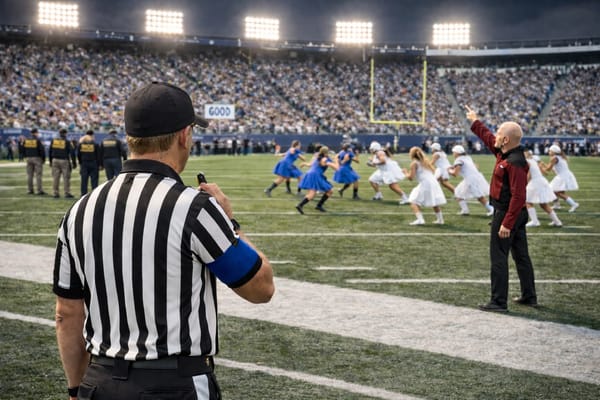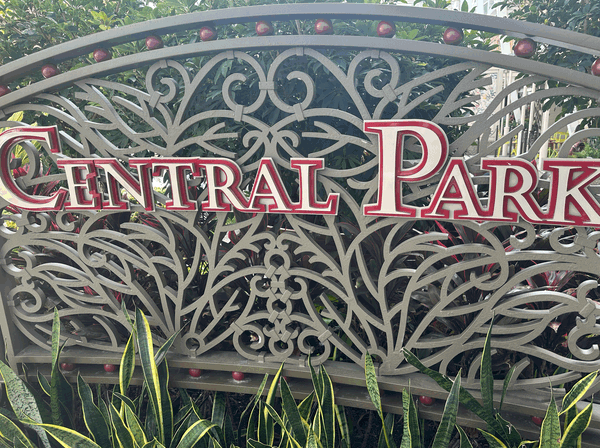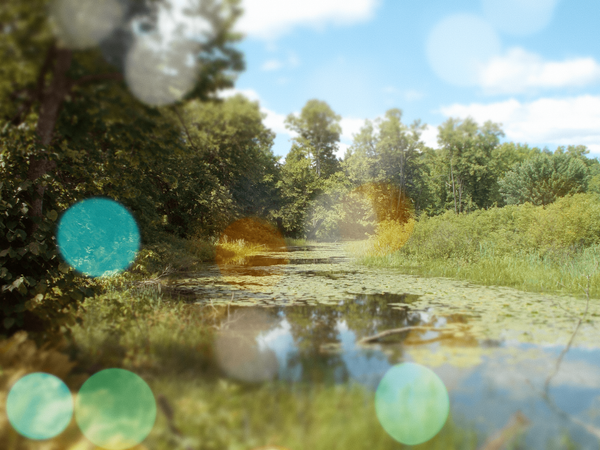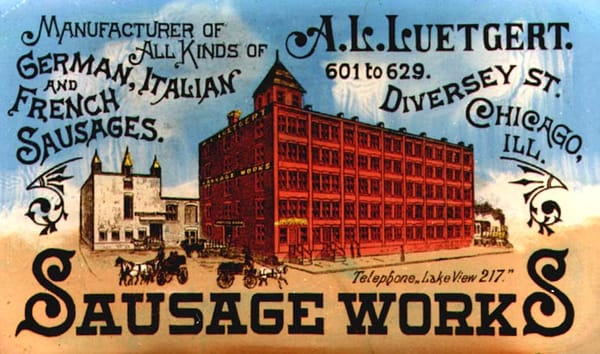TOURIST GO HOME!
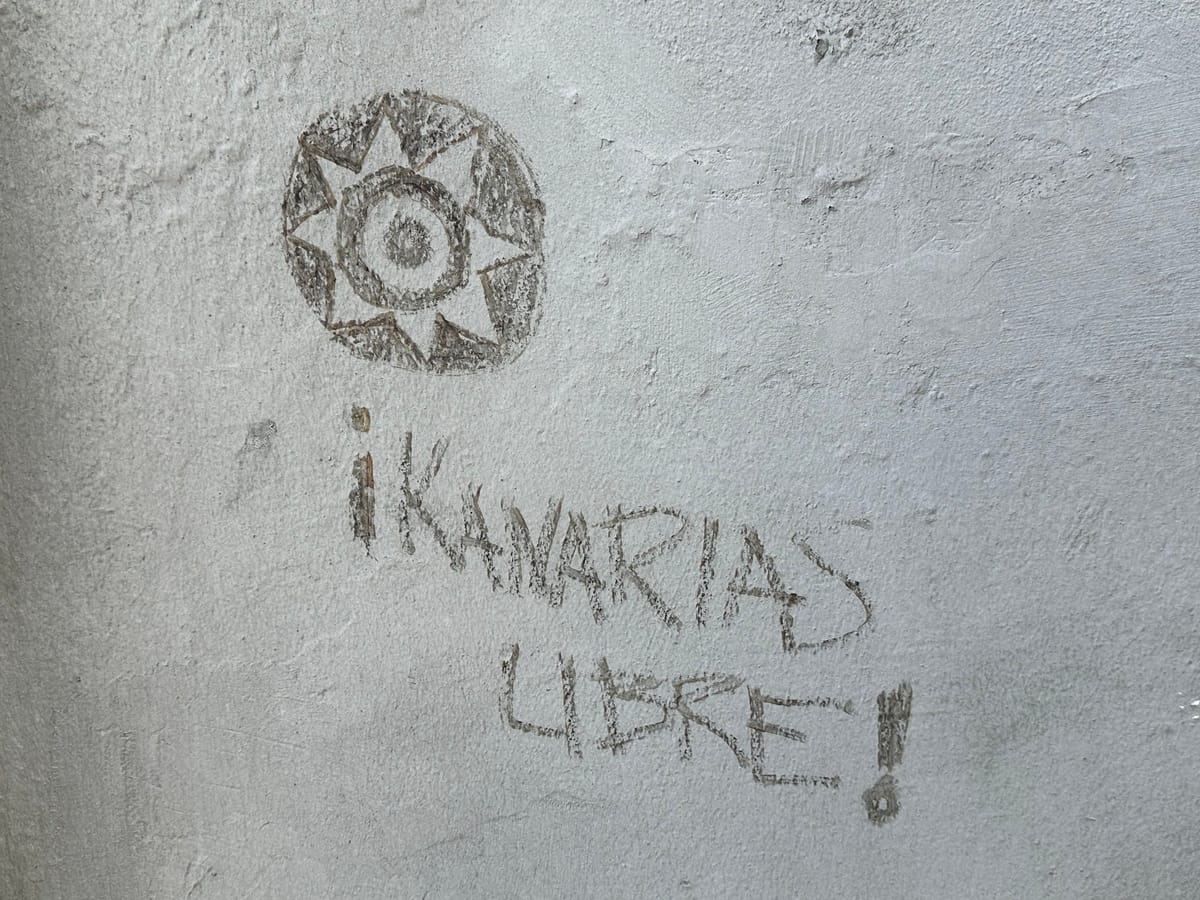
When I saw them dousing tourists with squirt guns at an outdoor restaurant on Las Ramblas in Barcelona, I was incensed. These diners traveled hundreds and thousands of miles to get to your country, are currently spending their money at tourist establishments, paying tourist prices, and you're spraying water at them and yelling for them to go home? They were invited to visit! Catalonians must be a uniquely rude community of people.
Then I calmed down a bit, and took a larger view.
I started working for AOL (America Online, a pre-Internet computer networking service) in April, of 1994. AOL was able to connect to the Internet in a few different ways, but the one that had the most impact before the World Wide Web came to prominence was a thing called "Newsgroups." That's a fascinating bit of history there, but I'll leave it to you to explore what the Internet before the WWW was like. For the TL;DR crowd, Newsgroups were like Reddit. And yes, the Internet is more than just the web.
AOL's newsgroup interface was easy to use, required very little technical knowledge, and it wasn't long before the masses of AOL users began to dominate the newsgroups. And there was a problem: they weren't locals. The people who had been using newsgroups previously were mostly associated with universities, and had a high degree of education and technical knowledge. They posted on sci.electronics for example, and interacted with people who understood this joke:

AOL democratized newsgroups. The unwashed masses dug through these various bastions of science, filled with experts or at the very least, tech savvy folks, and posted things like "Xbox sux! Playstation 4eva!" and a whole lot of "Me too!" I was at a party talking to a PhD candidate, and she asked me where I worked. When I said AOL, she let out a gasp of disgust and said "You guys are ruining the Internet!"
And she was right. But there was something more to think about: If you have something special, should you share it? Shouldn't everyone be able to have the same experience you have?
There's a similar thing going on in the #vanlife community. I once found a great place to park overnight in South Dakota in a part of the state that didn't have a lot of parking areas. It was quiet, spacious, had bathrooms and good cell phone service, and was completely free. So I did the honorable thing and posted it to iOverlander, an online resource for such things. A couple of years went by, and I checked on the listing to see if anyone had stayed there. I found that the place had been overrun, trashed, and was now closed to overnight parking.
I literally made that happen, just by letting people know it existed. And that led me to accept this, which I call "the axiom of the secret garden:"
If there's a cool thing, and people know about it, they will come, and they will ruin it.
I found another great spot near Garden of the Gods in southern Illinois, but I didn't list it.
Back to tourism. Folks are traveling in larger numbers than ever before. If the economy was "ruined by the Biden administration," you sure couldn't tell by the number of people spending record amounts of money to travel, both domestically and internationally. So yes, mass tourism is having an impact. And locals are getting upset.

In 2013, I had the distinct pleasure of sailing a very large ship through the Grand Canal in Venice. That will never happen again. I sailed to Bar Harbor—now much more difficult due to restrictions. Galapagos, where I've been twice, is weighing restrictions not only on travel but also on the local population. Thailand has closed some of its largest attractions to give them a "rest." Ha Long Bay in Vietnam, one of the most beautiful places I've ever seen, is being destroyed by local tour boats polluting the waters. Norway is considering closing ports. Alaska is looking at "days off" for passenger debarkations, and the Canary Islands are facing mass anti-tourism protests. And I'm ignoring the US National Park system, which is completely overwhelmed.
People have learned about these places, have the means to visit them, and are destroying them.
But have they destroyed Orlando? or Las Vegas?
Let's stick with Orlando. Orlando was created for tourists. Before the tourists came, it was an unremarkable town with some orange groves. Once Disney moved in, it became the number one tourist destination in the world. And as such, it is, in a way, "unruinable" to coin a word. The entire culture and economy there is dedicated to tourism and managing tourism. And THAT is what we should be talking about.
I'm not suggesting that Las Ramblas or the Falkland Islands turn into a Disney property (although some certainly would see that as an excellent thing). What I'm suggesting is that tourism is something that needs to be carefully managed, and in many of these places, it's been managed poorly.
A prime example of this was a trip to St. Petersburg, Russia a few years ago. This is not a trip I could do today, so my memories made there are all the more precious. But they're not "good," memories. We didn't have a great time in St. Petersburg, even though we hired a private, local guide. We went to Peterhof and The Hermitage, two of the world's most iconic buildings. And despite our tour guide literally forcing her way through the sea of crowd to get us in, we found that though we were actually inside The Hermitage, we couldn't see anything. I, being six feet tall, could see over people's heads well enough to see that there were paintings on the walls. Those shorter saw nothing but heads and armpits. OK, time for the next room! Push. Shove. Sidle. And more of the same.
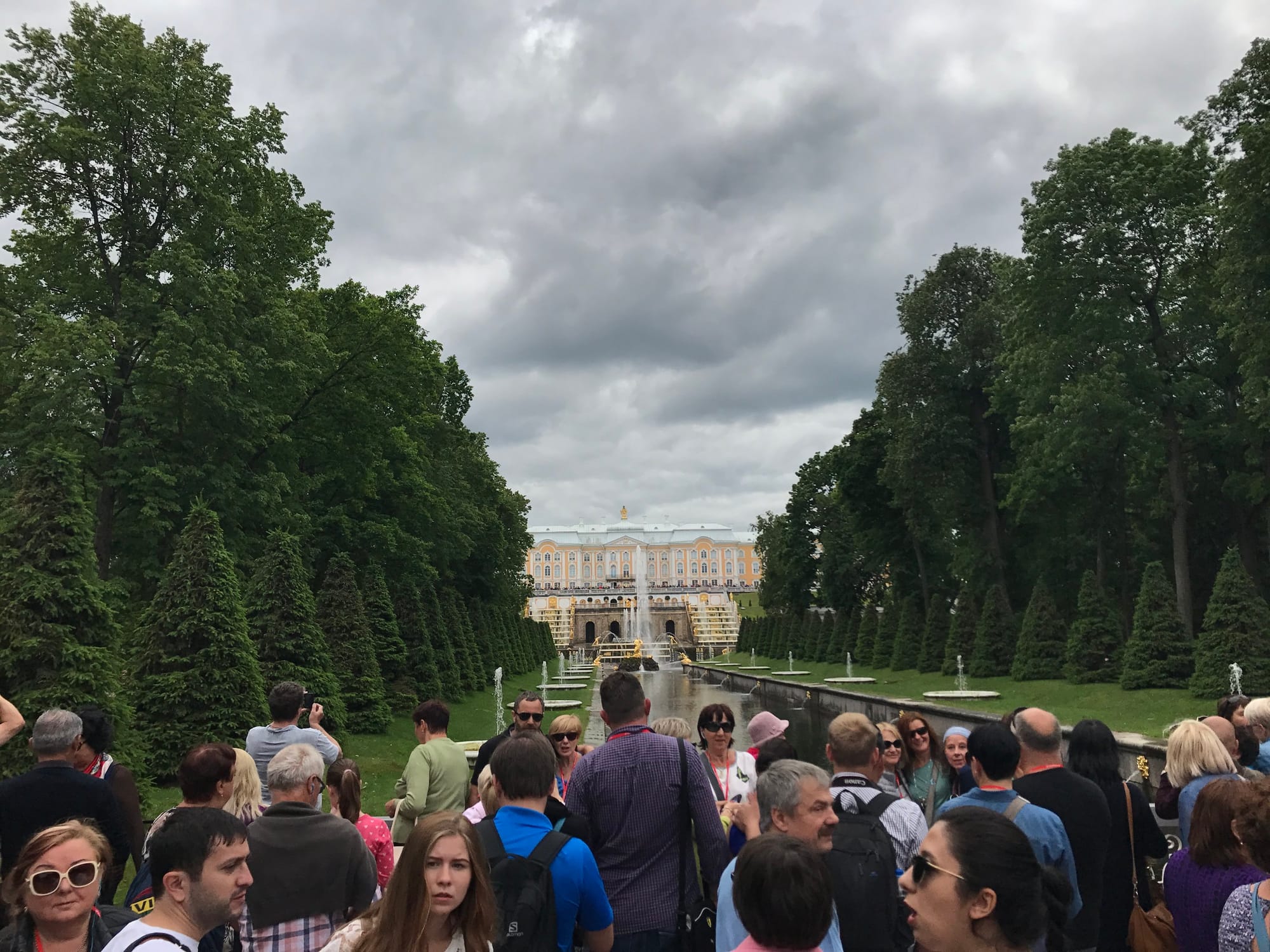
They don't manage numbers at all, and give admission to anyone with a ticket, despite the complete lack of capacity. And if there should ever be a fire on a busy tourist day, it will go down in history as one of the world's great tragedies.
So yes, we've been there. But we haven't, because tourists ruined it. But it wasn't really the tourists at fault.
I was recently in Barcelona. To see a large group of locals parading around town spraying water and shouting at tourists to go home paints an obvious picture that tourists aren't welcome. They're called "invaders" and even "terrorists" by some of the most vocal. But why do they hate people enjoying their city and bringing money so much?
It turns out, they don't.
It is true that tourists have changed the nature of Las Ramblas, Barcelona's most well-known district. This was once a wide street with local shops and some large produce markets that had a uniquely Catalonian flavor. One could bask (definitely not Basque) in what life was like in this tumultuous region of the diverse country that is Spain. But in 1992, the Olympics came, and so did the tourists, and they never left. The city began to cater to visitors, and the little locally-owned shops were replaced by larger and larger souvenir stands and then larger stores and now what you see is a bit more like an EPCOT version of Barcelona than Barcelona itself. Locals avoid Las Ramblas, and bemoan its loss.
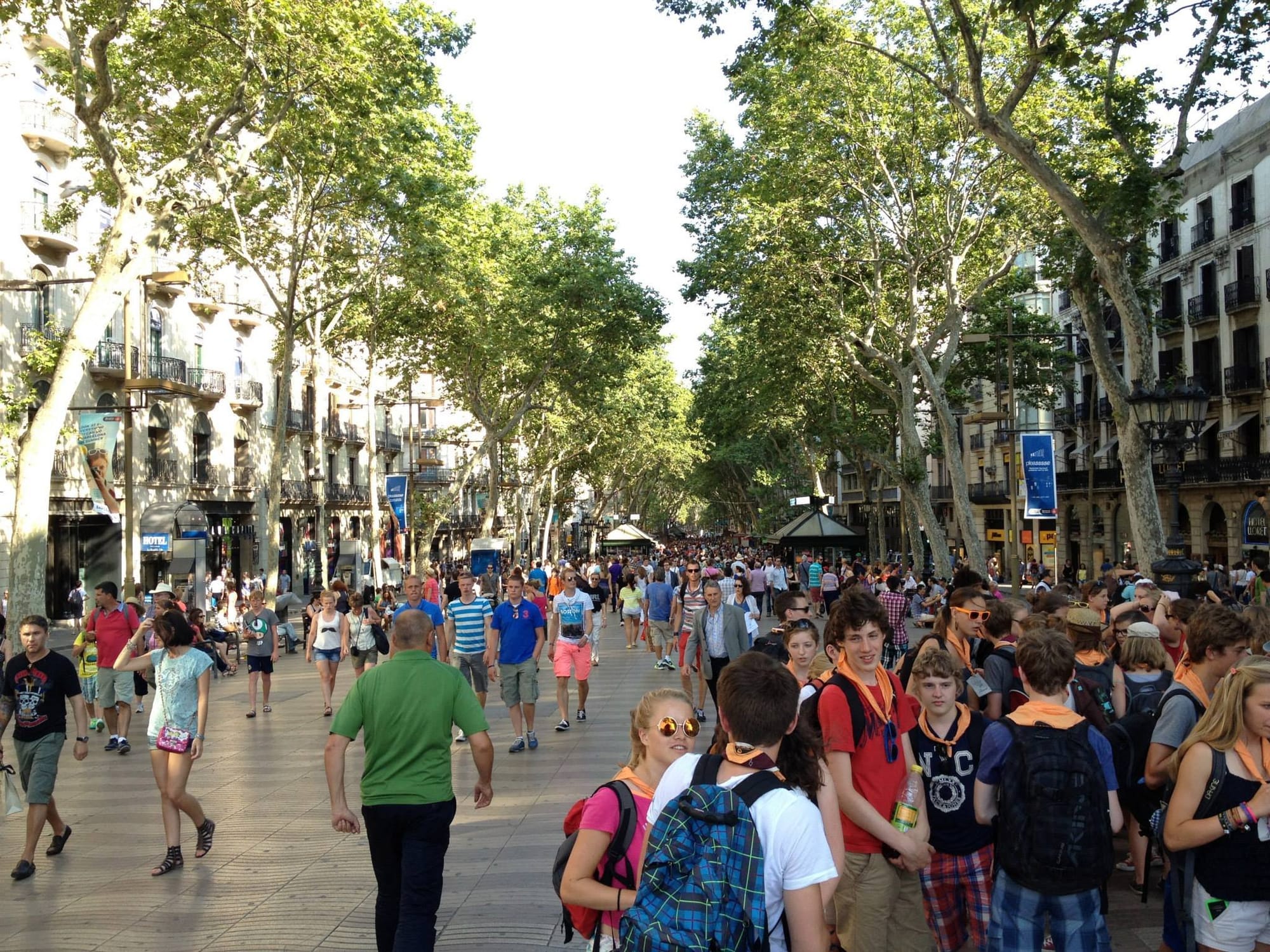
But it's worse than that.
AirBnB came along, and suddenly landlords realized that they could triple their rental income if they just painted the units, added simple furniture, and leased to tourists rather than locals. This, of course, drove the price of rent up such that many locals were priced out of the city. And you'll hear this story told all over the world in anyplace that's a "tourist spot."
And not all tourists are nice. Some are very loud, some are quite disrespectful of local culture, and some are so entitled that they think their US or British passport will get them out of whatever trouble they might get themselves into.
So of course the locals are upset. And after being ignored for years, they're starting to turn directly on the tourists. But it's my belief that they realize it's not the tourists that are the problem. They're just trying to gain attention for their important concerns. Any rudeness is a tactic, and not part of their nature. In fact, I encountered nothing but friendly people on my most recent visit, and yes, I avoided Las Ramblas.
And here's the thing: 12% of Barcelona's GDP comes from tourism. They NEED tourism. And the Canary Islands are far more dependent. They have the same problems as Barcelona, but their dependence on tourism is up to 40%. They learned during the pandemic that they need tourism to survive. So why are they protesting?
I watched a very informative video from a UK gentleman in the travel industry that I think does an excellent job of explaining the situation. I do recommend you take a few minutes to watch that. He let's locals explain the problem: they love tourists. They want tourists to come. And while they're annoyed by some of the bad-behavior, they're much more concerned at how little the government has done to protect their ability to live on the islands as tourism inevitably changes things.
Money is coming in, but the locals aren't receiving enough benefit from it. They want a piece of the pie. They want better management. And in my opinion, they're entitled to it.
It is a FACT that tourism changes things, but it's not all bad. Money is good, and there are a lot of communities that wouldn't exist or would exist in a much-reduced quality of life if it wasn't for people like you and me coming for a day or two. Think of the Bahamas, or Skagway, Alaska, or even Bora Bora. And think of all the thousands of cruise ship staff who work jobs that pay far more than they could make in the Philippines or Indonesia. Yes, there's a whole conversation to be had about their working conditions, but if you talk to the folks tending bar for you or tidying your stateroom, you'll find out how grateful they are for the opportunity (and you'll learn that they're impressively smart and educated, as my Dad often points out.)
I am a tourist. And I have impacted places for the better and worse. In fact, I'm more than most because I encourage other people to follow me. And I need to reconcile the enjoyment I and my fellow travelers get with the harm that tourism can and must cause.
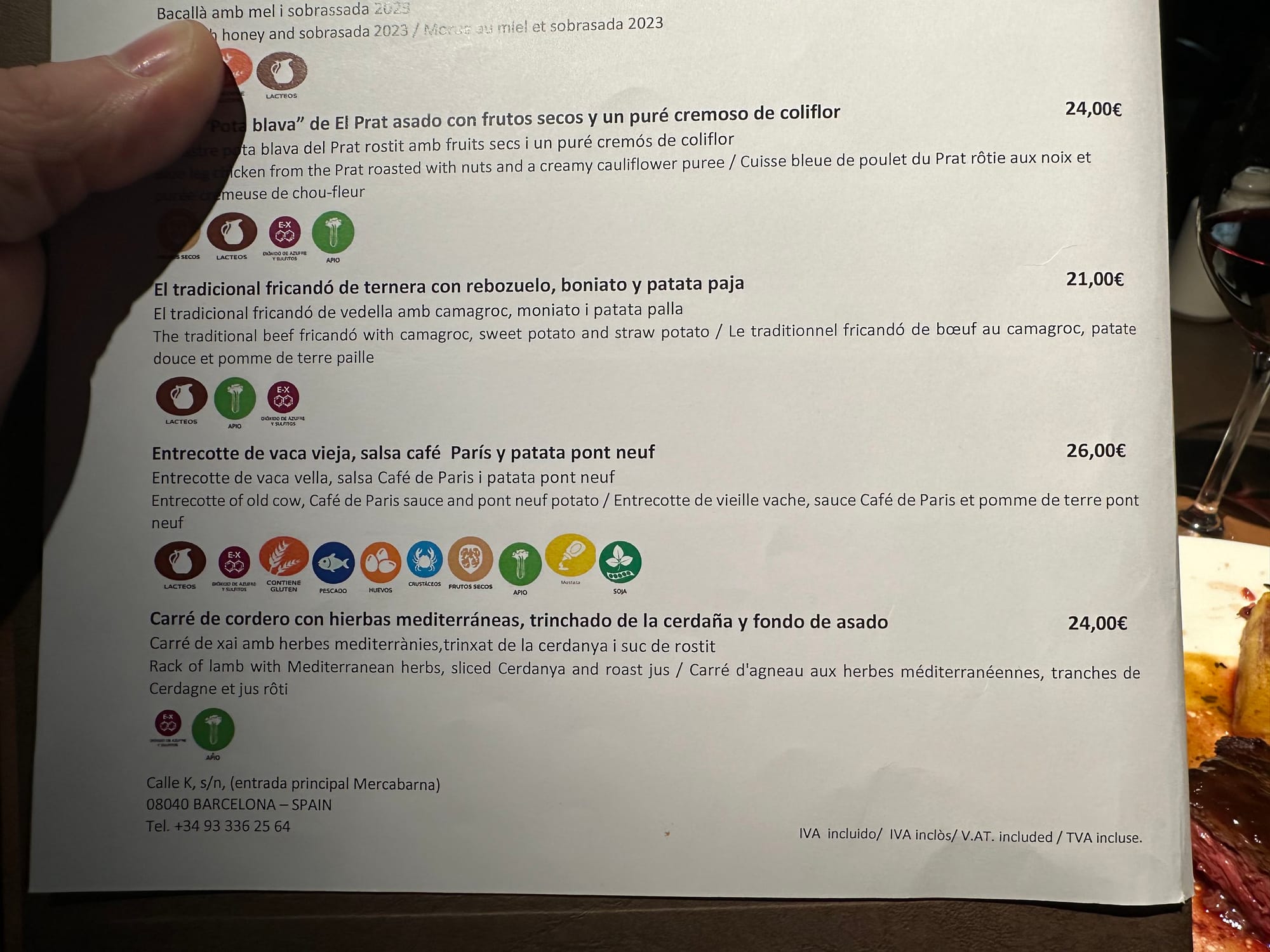
So here's my 10-part plan, going forward.
To the best of my ability, I will do the following:
1) I'll avoid places that are over-touristed. They won't miss me. My money means less to them. And in exchange, I'll get a much richer experience. I have ample evidence to support this conclusion.
2) Before I arrive, I learn about local customs and try not to be an annoyance. Personally, this means I will tone down my conversations and at times, wear more clothing than I'd like. I'll avoid drawing attention to myself in inappropriate ways.
3) I will try to stay at established hotels. Though they're not perfect, they are better regulated and have less of an impact on the local real estate and rental market. I will avoid AirBnB and VRBO.
4) I will spend money as locally as possible. While cruise ships don't necessarily impact the rental crisis as much as tourists who stay longer, they do consume a lot of resources by disgorging thousands of people onto ports that often have a population in the hundreds. I'll look for local guides, local shops, and avoid anything that smacks of "Little Switzerland" or "Diamonds International."
5) When possible, I will travel off-season, to reduce my direct impact.
6) I will stop complaining about "tourist taxes" and "tourist menus," the latter of which have higher prices if you're not local. These fees are a form of management.
7) I will listen to the locals, while at the same time realizing that no local speaks for all the locals. Residents of Lahaina say "stay away!" Shopkeepers of Waikiki say "Please come back!" I will be mindful of the choices I make, while realizing that none are perfect.
8) I will consider tourism's impact on my own city, Chicago. I hate that we have NASCAR here now, and I resent the fact that our downtown parks are taken up by events like Lollapalooza nearly all summer. At times, the El is overwhelmed with concert goers, and the Rush St. crowd can be annoying and destructive. How might my reaction to these things inform me of how locals feel about my presence?
9) I will appreciate how damned fortunate I am to be able to travel at all. I'm in the top 1% of 1% of most travelled humans who have ever lived, and you might be too. How fortunate we are. Travel is not a right, but a privilege.
10) I will continue to travel, and I will continue to think about the good travel can do and the harm it can cause. I'll endeavor to make choices that maximize the first, and minimize the second.
A lot has been said about the overvaluing of "travel" as a good character trait, and how one should be a "traveler and not a tourist," etc. I'm not interested in shaming those who fly 1,000 miles just to sit at Señor Frogs drinking imported tequila, and I think those who avoid McDonald's in foreign countries are missing an interesting experience. Some people want to visit foreign shores, and I say let them, whatever their reason.
Travel is a big part of who I am. But if I learn I'm unwelcome, I'm gone. So far, despite recent reports, I haven't found that to be the case. And I aim to keep it that way.

